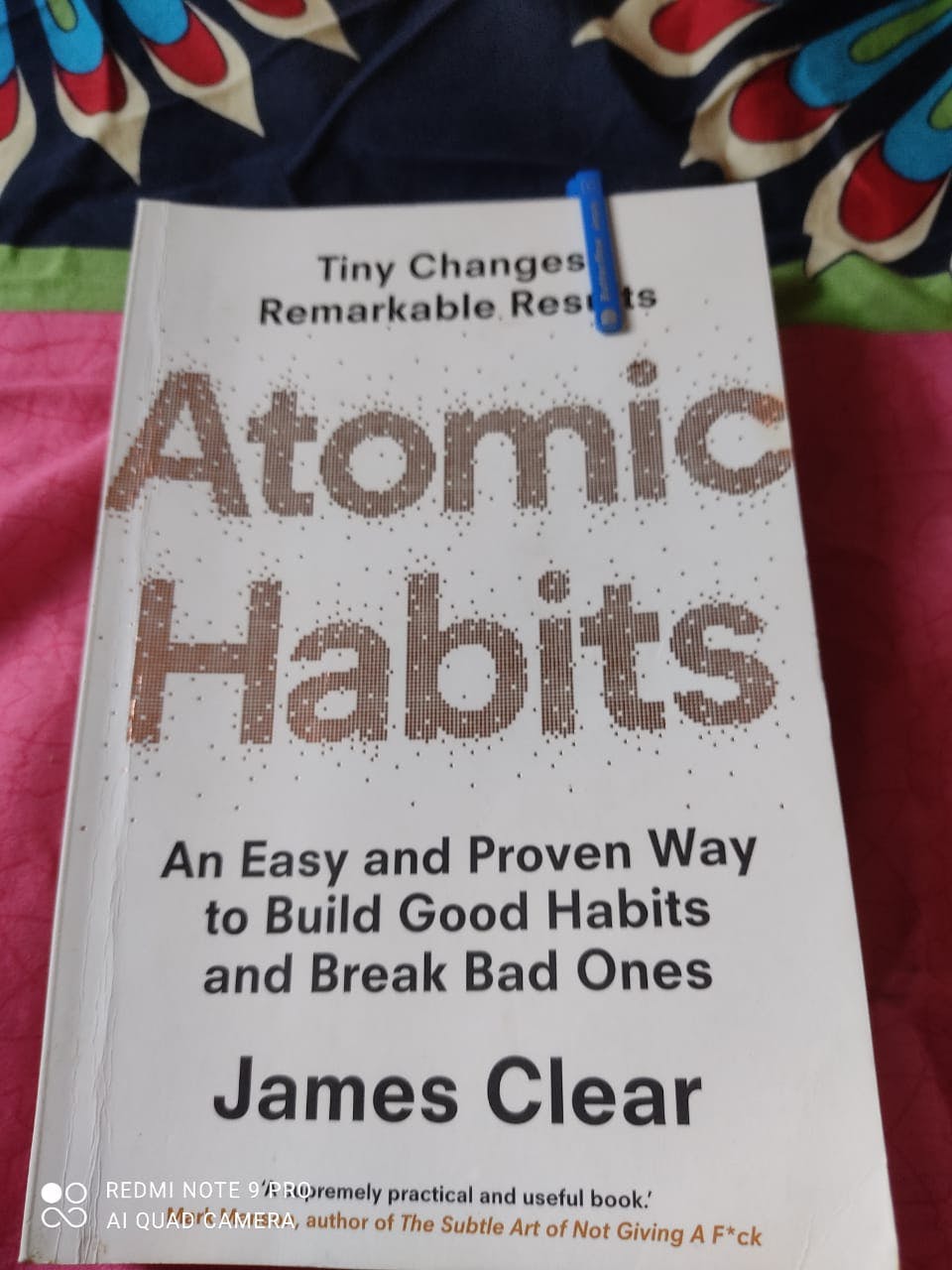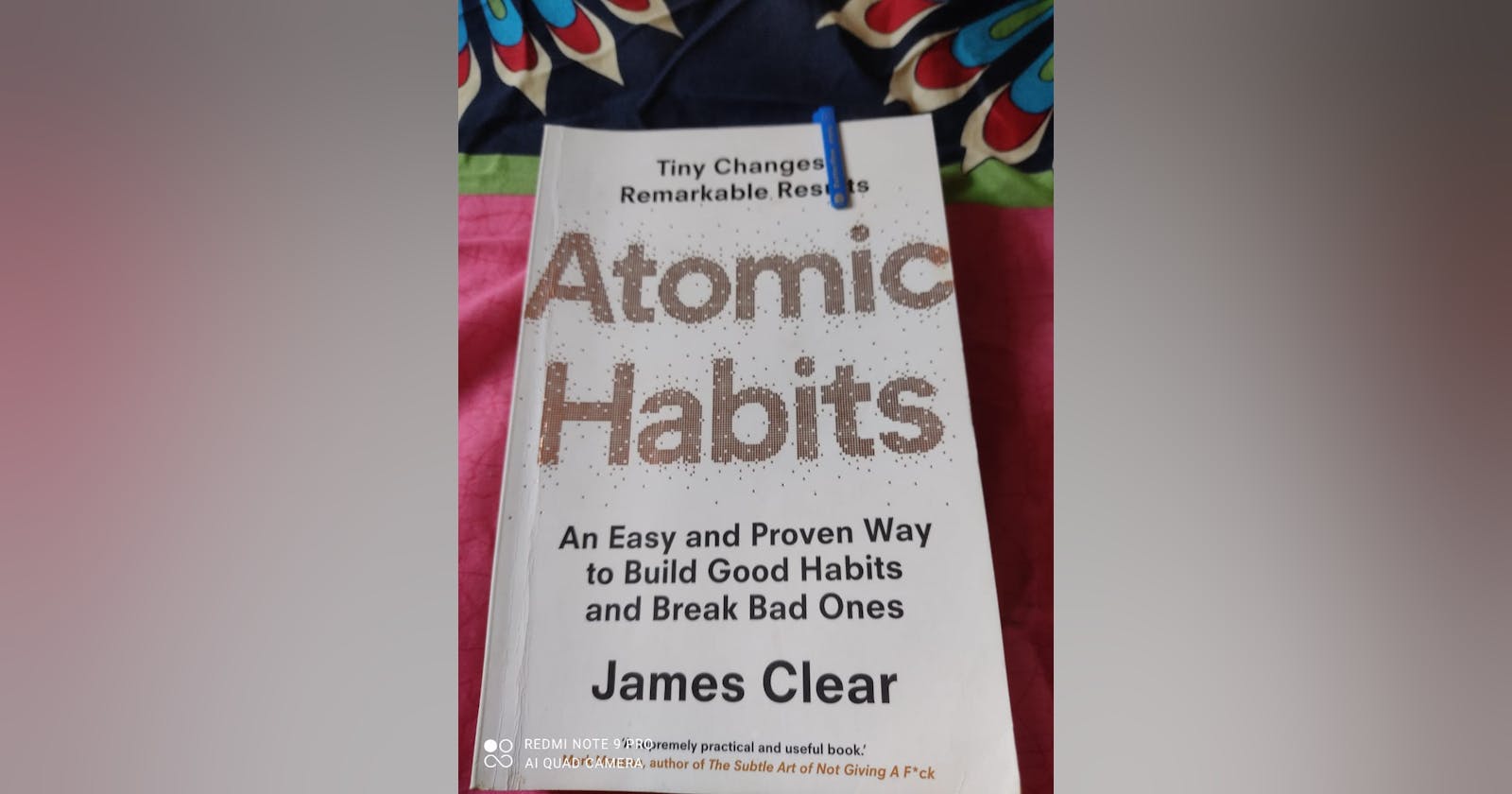To get better at anything consistent effort is required. Consistency is hard. Today you might enjoy doing something. Tomorrow your interest might wander. Something else comes up in the way. And, the streak you were trying to build breaks.
Atomic Habits by James Clear answers what is a habit, types of habits, how to build good habits, and how to get rid of bad habits.

Things to Remember:
Avoid having Zero Days. There are days when you might not feel like doing anything. On those days make sure to take a small step. Example - If you want to build a reading habit. On days when you don't feel like it. Try reading the minimum possible. Maybe 1 line, 1 page.
Habits can be divided into 2 broad categories. Outcome-based habits and Identity-based habits. Outcome-based habits focus on what you want to achieve. Identity-based habits focus on what you want to become.
Habits are not about having something. They are about becoming something.
There are 4 stages in habit building. Cue, Craving, Response, Reward.
Steps to build good habits - Make it obvious, Make it Attractive, Make it Easy, Make it Satisfying.
Steps to break bad habits - Make it invisible, Make it unattractive, Make it difficult, Make it unsatisfying.
Be the architect of your environment. Example - Suppose you always keep your mobile phone beside you. And, it keeps you away from doing deep work and being productive. Try keeping the phone in another room. And, work from a different room.
You can use habit trackers to build the habit and continue your streak.
Stop procrastination by following the law of minimum effort. If you don't want to do something. Try doing it for 2 minutes. You'll then come in flow state and not try to procrastinate.
Deliberate Practice.
Review and reflect on your process. It is important to move forward and improve. It is equally important to see where you are headed to?
Personal Opinion
In a world where people are running after outcomes. It is nice that Clear made a choice to highlight the process. The habit-building techniques mentioned create some level of friction in the whole habit-building process. Habit Stacking, categorizing habits into cue, craving, response, and reward is a challenge and might create even more resistance.
21 days, 91 days, 100-day challenges whatever keep surfacing on the web are marketing. You can do something for 100 days. And, then decide to quit. That's it. You quit. Those 100 days didn't build the habit.
Building and breaking habits is directly dependent on the mind. How much self-control you have. What are your personal narratives?
